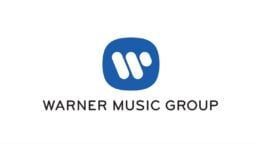Warner Music Group CEO Robert Kyncl participated in a Q&A session on Wednesday (September 6) at Goldman Sachs’ Communacopia + Technology Conference in San Francisco.
Kyncl touched on everything from WMG’s international expansion strategy to his prior experience as an executive at Netflix and YouTube, but one thing he wasn’t asked about was the big news in the industry that day – Universal Music Group and streaming service Deezer’s announcement of a new “artist-centric” payment model for artists.
That could have made for an interesting conversation, given that the model UMG and Deezer announced sounds fairly similar to the “multiplier” payment model that Kyncl himself suggested earlier this year.
That model would see artists get a “multiplier” on their payments if they are particularly popular with users, or if users tend to start their listening sessions with their music.
In the model that Deezer announced with UMG – starting with France this year, and expanding to other markets in 2024 –Deezer says it will attribute a double boost [i.e double the stream weighting] to what they define as “professional artists” – those who have a minimum of 1,000 streams per month by a minimum of 500 unique listeners.
There will also be an additional “double boost” for played tracks that users have actively searched for.
Though Kyncl’s conversation didn’t touch on the UMG/Deezer deal, the WMG CEO did share some thoughts on what a shift to an “artist-centric payment model” – as the idea has been labeled by industry players – would mean in practice.
Creating a workable alternative to the pro-rata payment system in place today will require “wider cooperation” among industry players, both at music companies and streaming services, Kyncl said.
(Update: A senior source at UMG said that there have been no discussions between the company and other major music rightsholders regarding the ‘artist centric’ model now rolling out at Deezer. “Universal’s only work on this is with the individual platform,” they said. “It is then entirely up to the platform how they choose to improve the model.”)
Said Kyncl: “If you’re on the DSP side, obviously, you don’t want one partner with this, another partner with that. And so you want some kind of a scalable model that can function. So it’s important that it’s not just one company working on this, there [are] multiple companies in the industry working on it. And I think we’re starting to see that… quite actively.”
“So I think it’s amazing that there is a push, especially amongst the major music companies, to change both revenue per user as well as the pie distribution.”
“Focusing on the revenue per user is [a] very, very important part of what the industry needs to do.”
Robert Kyncl, Warner Music Group
In Kyncl’s view, those two elements – revenue per user at the streaming services, and the distribution of the money allocated to royalties – are the two key factors in determining a new payment model.
Revenue per user among streaming services is “lagging inflation today,” Kyncl said, adding that, if Spotify’s monthly premium subscription fee had kept up with inflation since the service launched in the US in 2011, it would cost $13.25 today, and not the $10.99 it currently charges (and up from $9.99 just a few months ago).
Kyncl estimated that Spotify’s average monthly revenue per paying user, when taking into account Spotify’s family plans, is sitting somewhere near $7.50, and there’s a “tremendous opportunity” in raising that number. (Spotify itself reported Premium ARPU of €4.27 per user, in Q2 2023. However, Kyncl may have been referring to Spotify’s ARPU in the US market.)
“So focusing on the revenue per user is [a] very, very important part of what the industry needs to do,” Kyncl said.
Kyncl also confirmed the recent announcement of a joint venture between WMG and Eliot Grainge’s 10K Projects, which will see WMG take a 51% stake in the seven-year-old Los Angeles-headquartered label.
“We’re bringing incredible talent both on the artist side as well as on the executive side into our pool,” Kyncl said. “And obviously, we continue to recruit and invest into technology talent as well as to set up the company.”
Here are three other things we learned from Kyncl’s Q&A session…
Responsibility for AI-driven copyright violations rests primarily with platforms
This year, as AI technology has exploded, one particularly alarming development for music rights holders has been the arrival of AI-generated tracks that mimic the voice and style of professional artists, with the “fake Drake” track that went viral this spring being perhaps the most obvious example.
In Kyncl’s view, there are three key players in addressing this problem: government, with its ability to pass legislation; the “consumption platforms” where these tracks are distributed; and developers of generative AI engines.
Government regulation “always takes time,” and AI developers are in a race to develop their technologies ahead of the competition, Kyncl said, so at least for now, “I think the primary responsibility… sits with the consumption platforms… especially the open consumption platforms where the content will end up.”
By “open platforms,” Kyncl was referring to platforms where anyone can upload content, such as YouTube and TikTok.
“I think it’s amazing that there is a push, especially amongst the major music companies, to change both revenue per user as well as the pie distribution.”
Robert Kyncl, Warner Music Group
When someone creates new content with a third party tool, “they will want to get views or streams somewhere and they’ll go to large platforms. So my focus is first and foremost on… platforms, to make sure that they have practices in place that help us protect artists’ choices, and have the right attribution and the right monetization framework.”
Kyncl compared the situation with AI today to the situation with user-generated content (UGC) 15 or 20 years ago, when YouTube was getting started as a cultural phenomenon.
“When I joined YouTube early on, we had lots of issues related to [UGC], and we had to work on sorting. And… we did. We built a very large multiple end dollar business for our partners from fan uploaded content of their copyrights, that was using their copyright[s]. And it required technology and deal making and partnership and all of that, and we applied it all and built it.”
In Kyncl’s view, the issues with AI are a parallel to that, “just slightly different, more advanced and faster, but the playbook is very similar.”
Kyncl’s take on this is significant espeically in light of the fact that some other rights holders see it differently – they see the developers of AI as having primary responsibility.
For instance, a number of authors have launched lawsuits against OpenAI, arguing that the company behind the ChatGPT app infringed on their copyrights when its AI algorithm used their copyrighted books as part of its training.
The music business should take a page out of Netflix’s playbook when it comes to pricing
Even with everything going on with AI, the issue of pricing is arguably the biggest topic on the minds of music industry insiders this year.
The growing chorus of voices calling for price hikes at the DSPs finally found purchase this summer, with Spotify’s announcement of a rate hike for its individual premium subscription plan.
Yet many in the industry, including Kyncl, are calling for recurring price hikes, especially in the face of elevated inflation in recent years. In his Q&A session Wednesday, Kyncl, suggested that, when it comes to raising prices at subscription entertainment services, the industry should look to Netflix for inspiration.
“I think taking a page out of Netflix’s playbook is a smart thing for all of us to do,” Kyncl said, noting the DSP’s “price innovation” over the past several years.
“I think the primary responsibility [for AI content] sits with the consumption platforms… especially the open consumption platforms where the content will end up.”
Robert Kyncl, Warner Music Group
Netfllix has been systematically raising prices in the US market since around 2013. Its first streaming-only standard plan (that excluded its mail-order movie service) rolled out in 2011 at $7.99 per month. Since then, it has incrementally increased, by way of seven separate price hikes, to $15.49, an increase of nearly 94% over little more than a decade.
In the meantime, however, it introduced a less expensive “Basic” option, which allowed for only one stream on one device at a time, and a family-focused Premium option that allowed simultaneous viewing on up to four devices, as well as 4K streaming. Both those plans have seen incremental price hikes – though the Basic plan came down in price when it became ad-supported in 2022.
“The amount of work and innovation that happens around price optimization [at] Netflix is incredible,” Kyncl said. “And I think we all have a lot to learn from that, and we should adopt it.”
Musical talent is becoming more diverse and global, and WMG is capitalizing on that
Kyncl echoed comments made by a number of other music industry insiders – notably Live Nation Founder and CEO Michael Rapino – in his observations about the rapid cultural changes taking place in music, namely how the internet is globalizing the sources of musical talent.
“I grew up in a small country, in Europe, [in] Czechoslovakia. Any small countries that can take advantage of a global marketplace, it’s an incredible thing,” Kyncl said.
“And I think you’re seeing that play out in music tremendously. The music industry really used to be [a] very Anglo-American industry that… exported its content everywhere and effectively all of the territories were, in marketing, arms for that content.”
He continued: “What you’re seeing today because of the internet is that there’s [a] tremendous amount of talent all around the world that resonates with people all around the world, not just in their own countries.
“To me, this is the exciting part, when you start unleashing creativity everywhere. And I think now the real job is to find that great talent that can resonate not just in their country, but expands all around the world and punches above its weight class. And that is effectively what [WMG] started to focus on quite a few years ago. That’s why we’ve made investments in different companies around the world, and it’s been paying off.
“And you see markets like India, Africa and MENA growing in [the] 40s, 30s and 20s… respectively. So obviously, there’s [a] tremendous amount of growth – smaller base, lower ARPUs, [but] nevertheless important.”Music Business Worldwide





